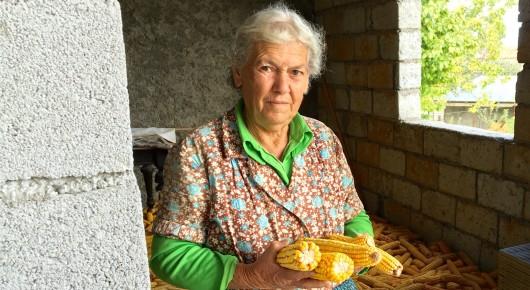Modern-day contract farming holds promise in Georgia

Contract farming is one way of coordinating farmers and the agribusiness firms who buy their produce. FAO is promoting contract farming in Georgia under the EU-funded European Neighbourhood Programme for Agriculture and Rural Development (ENPARD).
A two-day training workshop was held recently in Tbilisi, to discuss basic concepts, planning and implementation issues, legal and regulatory aspects, and case studies of contract farming experiences around the world.
Contract farming is based on an agreement between a buyer and farmers, establishing conditions for the production and marketing of farm products. Producers commit to future delivery of farm products to a buyer, with agreed specifications such as price, delivery dates, production technology, and quality characteristics.
To be sustainable in the long run, a contract farming agreement should be mutually beneficial for buyers and farmers.
The contract farming workshop, held on 9-10 February in Tbilisi, was facilitated by Carlos da Silva, professor of agro-industrial economics and management at the Federal University of Viçosa in Brazil, and former senior agribusiness economist at FAO Rome.
“There is a growing interest in contract farming globally,” said da Silva, “because it is one of the proven mechanisms that can improve efficiency in transforming food and agriculture systems.”
Workshop presentations were followed by discussions among participants – who hailed from the Ministry of Agriculture, private sector entities, research organizations and international nongovernmental organizations.
“We are promoting farming contracts in Georgia,” said FAO ENPARD project manager Lasha Dolidze, “because well-established commitments between buyers and farmers can guarantee a secure market for the products, thereby allowing farmers to reduce market risks and earn increased revenues.
“Buyers in turn guarantee the supply of the agricultural products they need,” he continued, “thus increasing the efficiency of their procurement systems and increasing returns on their investments.”
The contract farming workshop was organized with the support of the European Union’s ENPARD programme. Implemented since 2013 with a total budget of EUR 102 million, the main goal of ENPARD is to reduce rural poverty in Georgia.
27 February 2017, Tbilisi, Georgia
